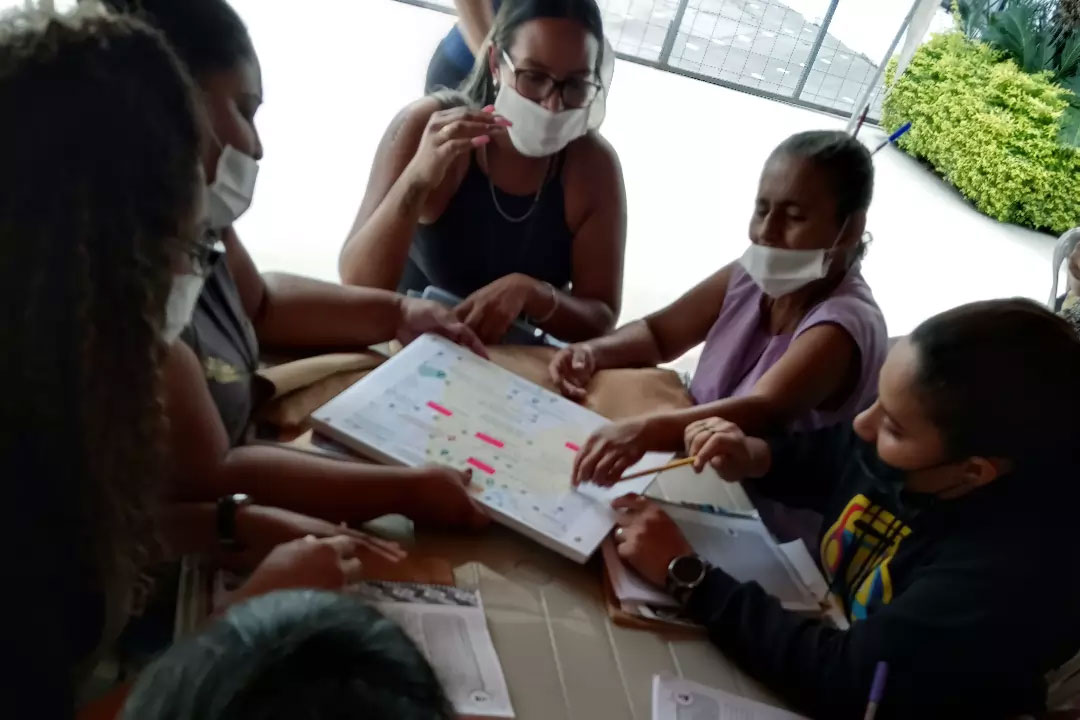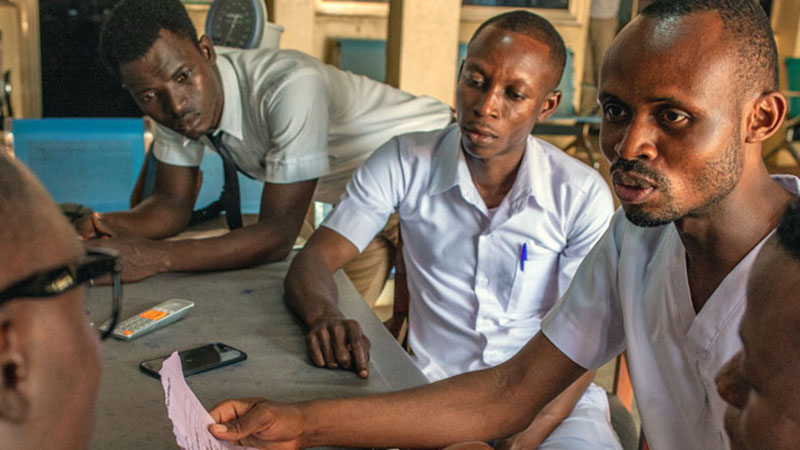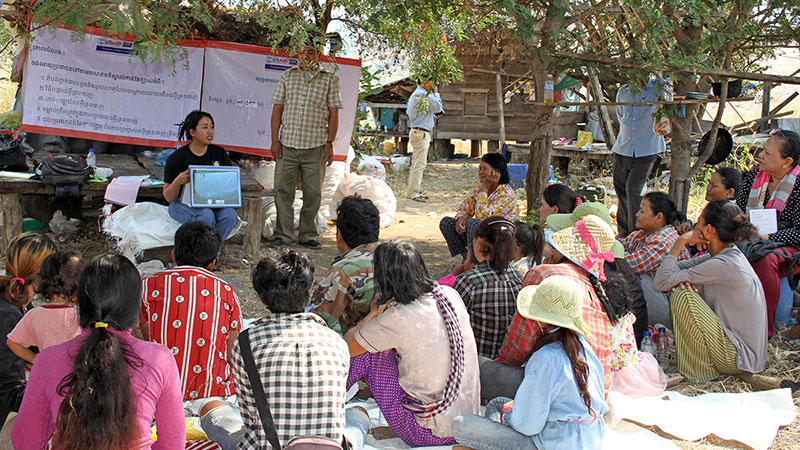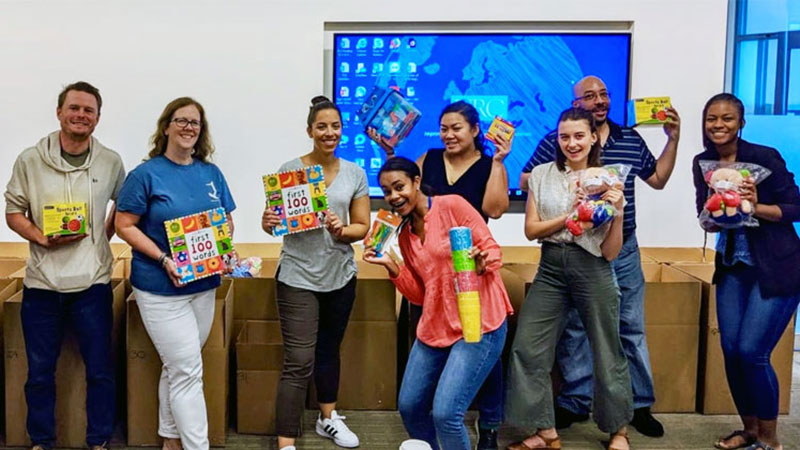Gender-based violence (GBV) is gaining more attention globally as a shadow pandemic of COVID-19 – one exacerbated by pandemic-related stressors. Stay-at-home measures have increased the risk to GBV victims, who – while remaining at home with their perpetrators – are further isolated, limiting their ability to access support and health services.
A Stark Global Reality
GBV encompasses any harmful threat or act directed at someone based on their gender identity, or sexual orientation. It can take many forms, including intimate partner violence (IPV), sexual violence, child marriage, female genital mutilation, sex trafficking, female infanticide, child sexual abuse, and honor crimes. GBV perpetrators use or threaten physical, psychological, sexual, economic, legal, political, social, and other forms of abuse and control.
GBV against women and girls represents the majority of GBV and is one of the most prevalent human rights violations in the world. The World Health Organization estimates that 1 in 3 women globally experience physical and/or sexual violence in their lifetime – most of the time committed by an intimate partner. Pregnancy is a particularly high-risk time in which 1 in 4 women globally experience one or multiple forms of IPV – psychological, physical, and sexual.
This violence – which is deeply rooted in structural inequalities and power imbalances – transcends national, economic, and social boundaries, and impacts individuals across the lifespan.
The direct and indirect cost of GBV to individuals, communities, countries, and their development is significant, and the consequences are well documented. These include adverse mental and physical health outcomes, poorer learning outcomes, and reduced productivity – all essential components of development and health.
Addressing GBV in Program Planning and Implementation
GBV is a threat to the implementation and success of development initiatives globally. URC embeds measures in our programs to prevent and respond to GBV. And we assure access to services by groups at risk of GBV. Our commitment to gender equality and women’s empowerment is integral in the design of our projects.
“Evidence from previous pandemics, such as the Ebola virus, highlights that not putting in place GBV risk mitigation across sectors and activities may unintentionally create a risk of GBV.”
Excerpt from USAID Issues and Recommendations on Gender-Based Violence Prevention and Response in COVID-19 Programming guidance released in March 2021.
GBV prevention requires a multi-pronged program approach, starting with a clear understanding of context-specific GBV stressors and risk factors. Program implementation approaches and activities that prevent and respond to GBV are key as is generation of evidence on best practices in GBV treatment and care. Some of the best practices URC employs to prevent and respond to GBV are highlighted below.
Gender Equity and Social Inclusion Analyses and Workplans
Jordan: To adequately understand and address the importance of gender in the Health Services Quality Accelerator Activity in Jordan, URC developed the Gender Equity and Social Inclusion (GESI) Workplan. This workplan describes the underlying determinants of inequity in health in the local context, including structural, social, and individual determinants impacting access to and uptake of quality reproductive, maternal, neonatal, and child health services. An implementation plan informed by the GESI analysis is included. In Jordan, this includes steps to increase the health equity of marginalized populations.
Targeted Prevention to Address GBV Triggers and Stressors
Philippines: The Bangsamoro Autonomous Region in Muslim Mindanao for Health (BARMMHealth) Project implements GBV prevention activities focused on men.
The region suffers from a lack of equitable access to health care, exacerbated by inequitable gender norms. The 2017 National Demographic and Health Survey revealed that women in the region are more likely to agree that husbands can hit their wives than women elsewhere in the Philippines. Gender inequalities evident in these attitudes contribute to inequitable health service utilization and health outcomes for women and girls. Violence against women and children – especially sexual violence – is prevalent in the region.
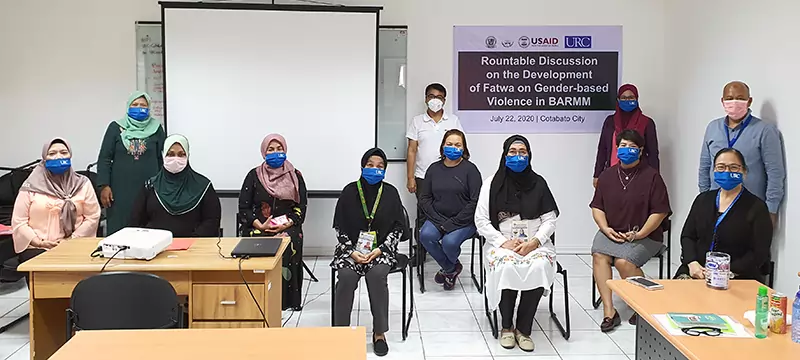
To address the social and cultural root causes of gender inequities and GBV, the project implements targeted social and behavior change communication campaigns for men and boys to promote gender-equitable relationships, shared caregiving, and healthy masculinities to change gender norms and practices. The project supports Muslim religious leaders to develop the fatwa – or Islamic religious decree – on gender-based violence to redefine social and cultural norms around violence against women.
Making GBV Services Available, Including Health, Case Management, and Social Support
Uganda: Under the USAID Regional Health Integration to Enhance Services-North, Acholi (RHITES-N, Acholi) Activity, URC supports the implementation of the DREAMS (Determined, Resilient, Empowered, AIDS-free, Mentored, and Safe) initiative. A public-private partnership, DREAMS aims to reduce rates of HIV among adolescent girls and young women in the highest HIV burden countries. Eligibility to enroll in the program includes having a history of teenage pregnancy, no or irregular condom use, engaging in transactional sex, and experience with violence. Once enrolled in DREAMS, members receive training on HIV and violence prevention through the Stepping Stones curriculum, and learn life skills including financial literacy. Nancy, a DREAMS member, after experiencing GBV, said, “Joining DREAMS was the best thing that happened in my life. I was lost and couldn’t relate with people. Socializing in the group built my trust and faith in human relations again.”
Through RHITES-N, Acholi, URC mentors and trains health providers, village health teams, local councils, community linkage facilitators, police, and religious leaders on GBV identification and referral using the LIVES (Listen, Inquire, Validate, Enhance Safety and Support) approach. More than 500 participants were trained in the last year. This intervention is coupled with community-based GBV prevention, including through home visits by male role models who work to change attitudes towards GBV.
In the last year alone, the project reached 8,496 people with targeted messages on GBV prevention. 1,170 GBV survivors were referred for post-GBV services across the region.
The Acholi region of Uganda has seen an increase in GBV cases since the start of the COVID-19 pandemic. Since the beginning of the pandemic, RHITES-N, Acholi works to prevent and detect GBV through community outreach, working closely with other implementers and local governments to ensure streamlined and consistent social and behavior change messaging.
Action-Oriented Research to Build Evidence to Prevent and Respond to GBV
Global Implementation Science Work: Under the USAID Health Evaluation and Applied Research Development (HEARD) Project, URC leads a worldwide partnership to conduct implementation science research on topics including woman-centered care, mental health and psychosocial support, and child protection.
To address evidence gaps in best practices related to mental health and psychosocial support, the HEARD partnership is conducting implementation studies on mental health and psychosocial support interventions. One study currently underway focuses on reducing IPV and improving the psychological well-being among forced migrants in Ecuador and Panama.
The study – carried out by HEARD sub-awardees HIAS and Columbia University – will integrate Psychological First Aid to promote mental health and psychosocial well-being with advocacy counseling to reduce the frequency and severity of IPV. The study team will evaluate the implementation of the intervention in four complex, dynamic humanitarian settings in Ecuador and Panama.
Together with the City University of New York School of Public Health, URC manages the Mental Health and Psychosocial Support (MHPSS) Learning Collaborative, which will ensure evidence uptake from this study to improve IPV survivor well-being globally.
GBV is a serious violation of human rights and a life-threatening issue. URC programs work to end GBV and promote the rights of all people to live free from violence and abuse and receive quality health services.
